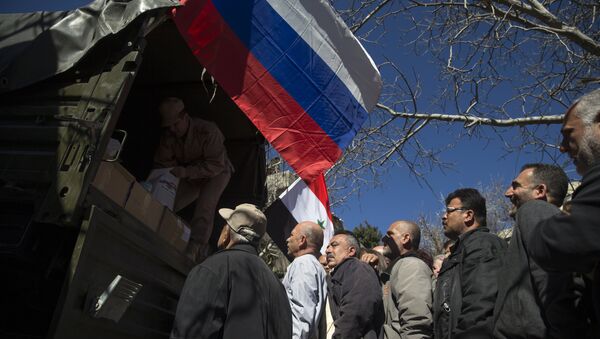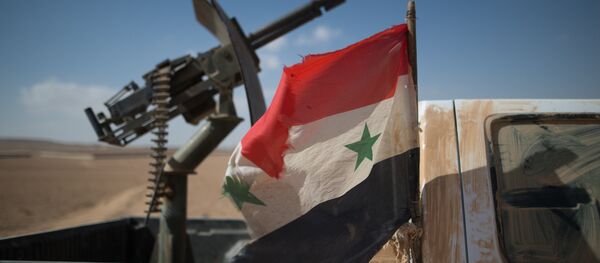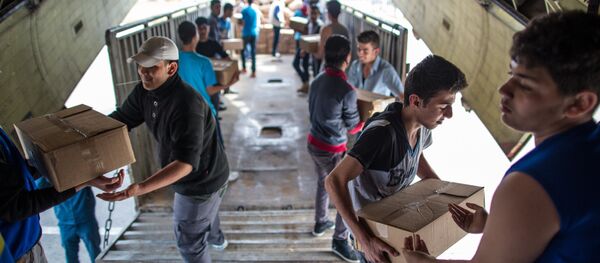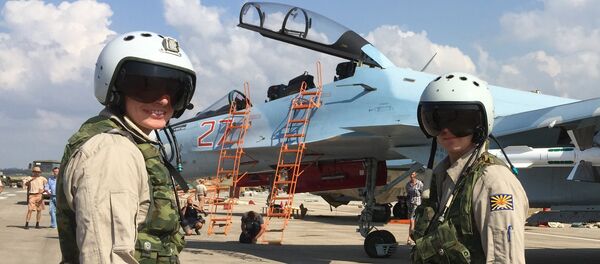The Syrian ceasefire has now entered its second week, and despite isolated violations, is holding.
Reporting from inside the country, Radio-Canada correspondent Raymond Saint-Pierre, one of several foreign journalists lightly injured after coming under artillery fire near the Turkish border last week, told Le Téléjournal that while the Russian air operation has stopped, its military is keeping busy, delivering humanitarian aid to the Syrian countryside, and attempting to strengthen Syrian President Bashar Assad politically.
"At its base in Hmeymim in Syria's Latakia, Russia has deployed its most advanced fighter jets, bombers, supersonic combat aircraft and helicopters. But over the last few days one can no longer hear the incessant noise of aircraft, taking off to execute hundreds of airstrikes," Saint-Pierre said, standing on the tarmac at the base.
Nevertheless, "Russia remains highly active in Syria. In the course of our visit, organized by the Russian Defense and Foreign Ministries, we were able to visit the village of Maarzaf. During the conflict, the village did not cooperate with either the opposition or with Bashar Assad's regime."
Village authorities, the correspondent noted, were convinced to sign on to a peace agreement with the government, supported by Russia, in exchange for defense and security. "Sheikh Ahmad Mubarak, an important person in the area, who has his own small army, thanked the Russians for their assistance, and promised to free the country from all invaders."
"About thirty such documents were signed after the intervention of the Russian military. Such events attract even more people thanks to the fact that military also distributes food aid and medicine."
"In the crowd is a man who came from elsewhere – Abdelhamid Avkod. He says he wants to stay in the country, despite the war. He and his family are from around here – from Aleppo, one of the cities most heavily affected by the war."
Ultimately, Saint-Pierre notes, "having intervened in this conflict, Russia says that it wants to help Europe restrict the flow of migrants. Here, they are attempting to convince Syrians to stay in their country."
"The ceasefire, local peace agreements, asylum seekers within the country…All of this must pass the test of time. Will the desire for peace be able to overcome this conflict, which has lasted for five years and claimed the lives of hundreds of thousands of people?" the journalist asked, concluding his report.
Citing local residents, Avgerinos said that the shelling was carried out from a village under the control of the Nusra Front terrorist group. The Russian Defense Ministry confirmed that the shelling was carried out from near the Turkish border, in the Dama settlement, near Idlib.
For his part, Saint-Pierre later told Radio-Canada that he had suffered what he called 'superficial injuries' to his hand, knee and elbow, along with a few cracked ribs, as he ducked to escape exploding shells.
He speculated that the shelling might have come from Turkish forces, or from the Nusra militants active in the area, and told the Canadian broadcaster that the journalists were "quite visible" and could not have been mistaken, "dressed in flak jackets and helmets taking pictures all over the place."
"The journalists were all very happy that nobody was hurt very bad," he said. Despite his injuries, Saint-Pierre went on to finish the four day press tour.
Canadian journalist among 3 others lightly wounded near Kensaba Latakia Syria by shelling likely frm JN or TR. https://t.co/dYKT6FoDhb
— David-Maxime Samson (@DMaxSamson) 3 марта 2016 г.





